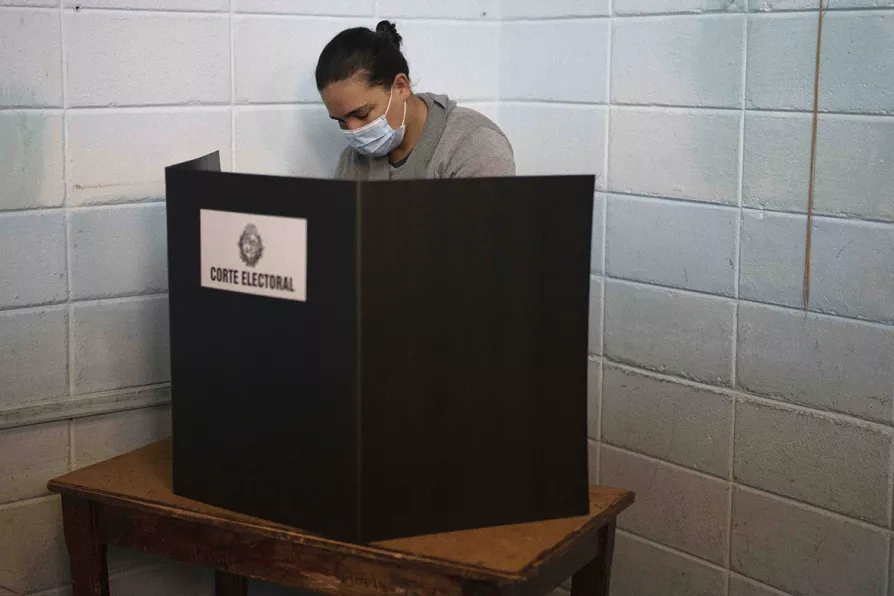Uruguayan referendum result could see strikes banned and picketing criminalised

 A man casts his vote during a referendum on whether to remove some of the articles in the Law of Urgent Consideration, know as LUC, in Montevideo, Uruguay, Sunday, March 27, 2022
A man casts his vote during a referendum on whether to remove some of the articles in the Law of Urgent Consideration, know as LUC, in Montevideo, Uruguay, Sunday, March 27, 2022
URUGUAYANS opted not to overturn 137 contentious articles of President Luis Lacalle Pou’s law of urgent consideration (LUC) by the narrowest of margins in a referendum on Sunday.
With 99 per cent of the ballots counted, 48.82 per cent of the votes were in favour of overturning the measures and 49.9 per cent were against.
In a country where voting is compulsory, the 1.32 per cent of ballots papers left blank were added to the latter, thus giving them an unassailable 51.22 per cent margin of victory.
Similar stories














